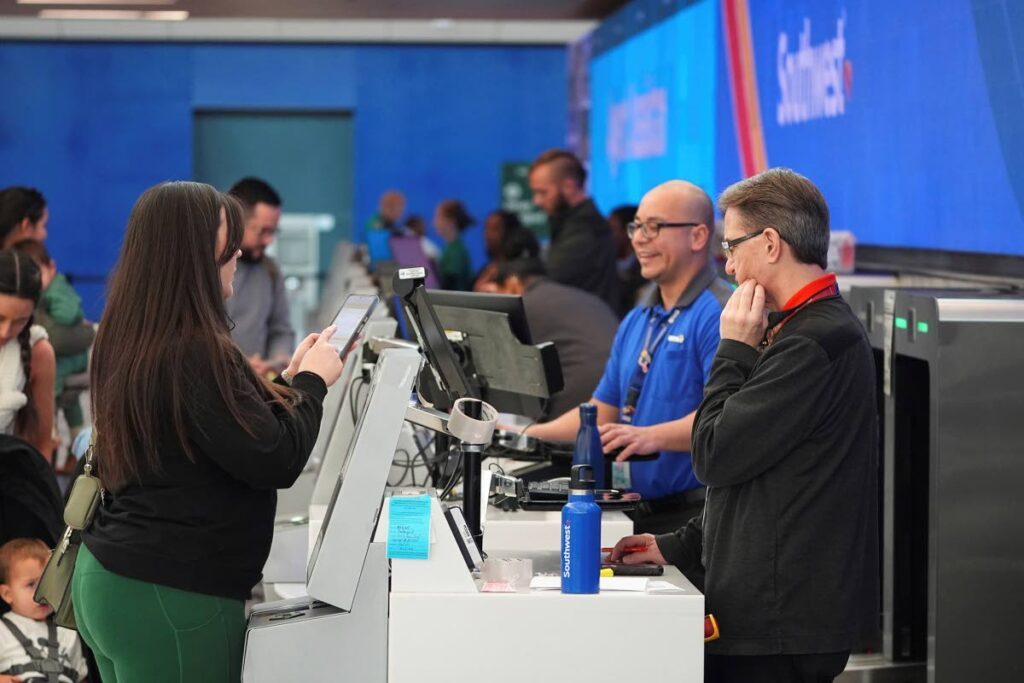Keeping Caricom passengers safe

After the 9/11 attacks, the US Customs and Border Protection Agency (CBP) a sub-agency of the Department of Homeland Security (DHS), implemented the Advance Passenger Information System (APIS).
APIS enhances border security by providing CBP with pre-arrival and departure manifest data for doing security screening and background checks on all passengers and crew members.
Under APIS rules, airlines must provide CBP at least 60 minutes before the departure of the flight with certain personal details of all passengers and crew members travelling to the US, for the purposes of doing security background checks.
This information includes the passenger’s full name, gender, date of birth, nationality, country of residence, passport number, expiry date and country of issue. With the exception of US citizens and legal residents, travellers must also provide their intended address in the US.
The airline cannot let a passenger board for the US unless he or she has been cleared by CBP.
At the behest of the US, the APIS was introduced in Caricom during the 2007 Cricket World Cup, which was held in multiple Caricom countries from February-May.The goal was to create a secure space for the large number of people travelling between them to watch the games.
After the World Cup, the obligation to submit APIS data remained in effect.
The Caricom Electronic Advanced Passenger Information System (eAPIS) is an automated electronic, web-based data-interchange application system established for aviation and maritime operators that can enhance border security over the region by supplying law-enforcement officers with data on passengers and crew members before their arrival in and departure from Caricom member states.
The Caricom APIS is managed by the Joint Regional Communications Centre (JRCC), a sub-agency of Caricom Impacs, headquartered in Bridgetown, Barbados.
The JRCC acts as the nerve centre of Caricom Impacs by collecting APIS data from all aviation and maritime carriers on all people travelling to, through and out of the region.
The JRCC Operations Department works on a 24/7 basis and processes submissions from carriers and shippers and provide feedback on people of interest to relevant law-enforcement agencies.
Commercial and private aviation carriers must electronically transmit their passenger data no later than 40 minutes before the flight departs.
Commercial maritime carriers must electronically transmit their passenger data within 24 hours of a vessel’s arrival in the region and an hour for departure within the region.
In October 2010, the global counter-terrorism community disrupted an attempt by al-Qaeda in Yemen to conceal and ship explosive devices in cargo on board US-bound aircraft.

Five days after the attempted attack, the US CBP and the Transportation Security Administration (TSA) began meeting with industry partners to better understand business practices and to collectively develop a mechanism to collect real-time cargo data in the supply chain.
The result of this public/private co-operation was the Air Cargo Advance Screening System (ACAS) pilot, which allowed CBP and TSA to use advance information from air carriers and other stakeholders to identify and intercept high-risk shipments in a pre-loading timeline.
The two agencies formed a joint targeting operation at a centralised location, which allowed easy collaboration among the DHS components. The targeting operation uses CBP’s Automated Targeting System and other available intelligence to identify packages that pose a possible security threat.
The ACAS pilot operated for more than seven years, as CBP continued to collaborate with industry partners and the international community to develop viable and effective regulatory requirements.
On June 12, 2018, the US Air Cargo Advance Screening (ACAS) Program went into effect, requiring the submission of advanced air cargo information on shipments arriving in the US from a foreign location.
Its requirements are now mandatory for airlines flying to the US. This is a necessary measure, as the DHS continues to raise the baseline on aviation security worldwide.
As part of the ACAS programme, participating carriers submit a subset of required pre-arrival air cargo data to CBP at the earliest point practicable and before loading the cargo onto aircraft destined to or transiting through the US.
At the 13th Special Meeting of Caricom Heads of Government on April 5, 2008, it was decided to establish an Advance Cargo Information System (ACIS) for the region. A Caricom Electronic Advance Cargo Information System (eACIS) was implemented and is managed by the JRCC.
Caricom’s eACIS is a critical part of the World Customs Organization’s (WCO) Standards to Secure and Facilitate Trade (SAFE) Framework as one of the “four (4) core elements.” The WCO says the SAFE Framework "harmonises the advance electronic cargo information requirements on inbound, outbound and transit shipments.”
The eACIS project was funded under the 10th European Development Fund Crime and Security Cooperation Project entitled: Strengthening Caricom capacity to prevent and detect illegal activity at its borders and to enable increased prosecution and higher conviction rates.
The eACIS is an integral and critical component of border security and forms part of the first line of defence against border security threats, using its capability to pre-screen and profile cargo with the use of risk-management techniques.
It enables Caricom states with the Automated System for Customs Data (ASYCUDA) to receive advance cargo information in electronic format through a centralised portal to help identify high-risk shipments that could threaten the safety and security of the region.
It allows customs authorities to examine cargo manifests before they arrive at ports throughout the region and to determine whether or what level of intervention is required.
The system further enhances intelligence-sharing, cargo reporting and compliance, greater collaboration and co-operation and maximised use of resources. Customs administrations using systems other than ASYCUDA can benefit from eACIS, as interface requirements between non-ASYCUDA systems can be developed and implemented by these member states.
Caricom Impacs and the JRCC were key players that worked with host governments to ensure the security and successes of the 2024 ICC Men's T20 World Cup tournament. The ICC praised the partnership between Cricket West Indies and Caricom Impacs, calling it a model for collaboration and information-sharing.
There are questions about the extent to which TT uses the facilities of Caricom Impacs- JRCC for border protection.

Comments
"Keeping Caricom passengers safe"